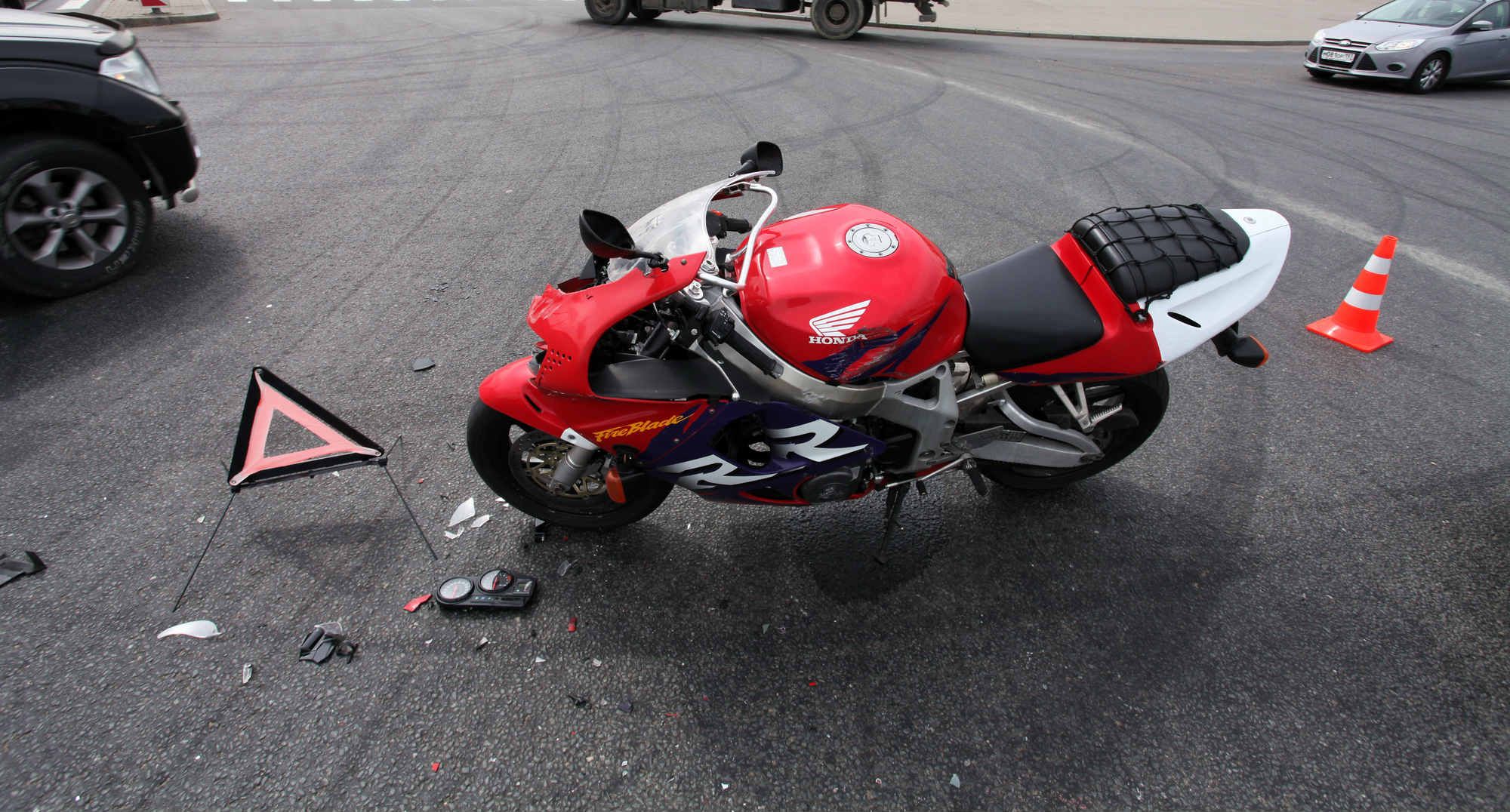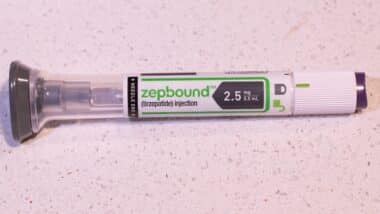
Motorcycle crashes are at least as devastating as automobile crashes, with the rider at an even greater risk because they are making direct impact. Riders should educate themselves about their insurance policies, especially in circumstances where their motorcycle is totaled.
Even if your insurance covered your losses after you had your motorcycle totaled, you may still be owed money if the company did not pay the associated fees and taxes.
Dealing with insurance can often feel like a nightmare, especially after an accident, but having a better understanding of total loss insurance claims can help ensure that you’re receiving all the compensation to which you’re entitled after a motorcycle accident.
What Is Total Loss Insurance?
Total loss insurance is what kicks in after a car or motorcycle is totaled in an accident. The term totaled means that the vehicle was wrecked badly enough that the insurance company considers it to be a total loss–that is, not worth repairing. More specifically, the insurance adjuster investigates the damage and finds that the loss of value, or the cost to repair the vehicle, is higher than the insurance value itself, according to The Balance. The insurance adjuster is also responsible for investigating the damage, determining reimbursement, and the total loss status. It is important for motorcycle owners to know what makes a motorcycle totaled.
Each state defines what makes a motorcycle totaled differently. According to ValuePenguin.com, some use a term called Total Loss Threshold (TLT), meaning that the damage needs to exceed a certain percentage of the motorcycle’ value before it is considered totaled. Others use Total Loss Formula (TLF), where it is considered a total loss if the cost of repair plus the vehicle’s salvage value exceeds the actual cash value (ACV).
The policyholder can then file a total loss motorcycle insurance claim. A total loss insurance claim can result in payment for the fair market value of the vehicle. Some insurance companies may be avoiding paying the full value of the vehicle by neglecting to pay the associated fees and taxes.
Motorcycle insurance claims can come in many forms. Some bikers choose to insure their motorcycles for a certain amount (“scheduled” or “stated” value), rather than by an actual cash value policy that would fluctuate with the free market, which may slightly change what makes a motorcycle totaled.
Can I File a Total Loss Claim if My Motorcycle Is Totaled?
Like a total loss claim for a vehicle, the insurance company will pay for a motorcycle based on its fair market value, or actual cash value (ACV). This amount will never be the same as the bike’s original purchase price.
Riders are encouraged to find out what a similar motorcycle could be sold for in the current market, using websites like CycleTrader.com or similar sites.
If an insurance company offers an amount similar to the comparable offers collected in research, riders are typically recommended to accept the offer. If not, riders may be able to negotiate the amount toward the ACV and meet the insurance company half-way.
However, it is important to note that if the motorcycle is totaled and the bike’s owner was not the one riding it, the insurance company will first pay off the loan and the remaining amount will be paid to the registered owner. This often happens with brand new bikes that are financed, with the rider still potentially owing on the loan if the balance exceeds the actual cash value.
How Is the Actual Cash Value of a Motorcycle Determined?
According to the International Risk Management Institute, the actual cash value is the replacement cost with depreciation. The Balance reports that the ACV is typically based on the fair market value, which is the price someone would pay for the bike if it were in good condition.
A number of other factors are also taken into account, including how the bike looks and how well it was maintained, along with its history, mileage, and local supply and demand. According to Rider.com, two popular sources for determining a motorcycle’s actual cash value are Kelly Blue Book and the National Automobile Dealers Association (NADA).
However, it’s important to note that the Kelly Blue Book is not approved by all state government banking and insurance departments, so bike owners should confirm whether or not their insurance company accepts ACV calculations from this source.
Insure.com explains that 34 states in the country require insurers to cover costs in addition to the value of the vehicle itself in a total loss claim, These costs may include sales tax, vehicle registration, the fees, and others.
In states that do not require insurers to pay other fees, you may still have a legal claim. Some insurers have been cited for failing to pay additional fees and allegedly shortchanging policyholders, even if state law does not always necessitate it.
If My Motorcycle Is Totaled Due to the Fault of the Other Driver, Am I Eligible for a Rental?
The responsible party’s insurance company is responsible for covering the following things for the rider who suffered the loss for a reasonable period of time:
- Providing a rental car or motorcycle during the period of time it takes for the total loss claim to be processed and delivered to the rider
- Paying the reasonable rental value or “loss of use” for each day the rider is without their motorcycle within a reasonable time period. This time period will vary between insurance companies
What Should I Remember When Filing a Total Loss Insurance Claim?
First, take your motorcycle to a repair shop that your insurance company lists as a preferred shop. Even if this is not your own preferred shop, this will be favorable for the insurance company, and with your motorcycle totaled, the shop’s repair work doesn’t matter; the relationship with the insurance company does. Using an insurance company’s preferred repair shop can expedite the claims process and get you compensated more quickly.
Motorcycle accidents, sometimes more than car accidents, can result in significant damage. In an accident in which a motorcycle was totaled, it is common for other personal items to be damaged in addition to the bike itself. Customers are advised to ask their insurance adjuster if gear like helmets are included in a policy’s coverage. If the items are not covered by your plan, your next course of action may be to find out if the other party involved in the accident should cover the cost of these items.
Motorcycle accidents are often very dangerous for the rider because motorcycles do not offer the same protection as a car. If you were in a motorcycle accident severe enough to total the vehicle, you likely suffered injuries. It’s possible that your insurer will cover some or all of the associated medical costs related to your accident.
However, it is important to have the proper documentation in place to file claims for injury coverage following a total loss motorcycle accident. If your insurance adjuster asks if you suffered any injuries, do not say “I’m fine” unless you have been seen by a doctor and he or she has confirmed that you were not injured. If you say that you did not suffer injuries in the accident, but later find out that you in fact did, you could be denied benefits because you stated previously that you were not injured.
To ensure that you receive the benefits you deserve, you may want to see a doctor after an accident, so he or she can determine the state of your health, and provide documentation that may be needed for a claim later on.
What Documentation Should I Keep During the Total Loss Claim Process?

Keeping documentation from your accident and after if you plan to make a total loss claim will help expedite the claim process and help ensure you get all of the compensation you deserve. This will help you be able to prove that you incurred all of the fees and costs you claim. The Balance advises drivers to file total loss claims quickly. They can take a long time to file, particularly if you must gather additional documentation.
File your claim as soon as you possibly can. Some states require drivers to submit a total loss claim within 30 days after the accident in which a motorcycle is totaled, but it can take well over a month to finalize and close a total loss claim. Acting quickly will help you get your compensation as soon as possible, better helping you to offset the cost of what can be an expensive incident. Timelines may particularly come into play if you are making a claim that seeks compensation for fees other than the cost of the motorcycle. To help expedite the process, be sure the title for your motorcycle is handy and ready to be signed over to the insurance company.
Additionally, if you do not receive all of the compensation you believe you are due, filing quickly will give you the opportunity to take further action.
Can I File a Total Loss Insurance Lawsuit?
Class action litigation has been filed against a number of major insurance companies over the failure to pay all necessary compensation in a total loss car accident, including sales tax and other fees. Geico was hit with a class action suit over its failure to compensate policyholders for sales tax and title transfer fees after a total loss car accident. In June 2018, a federal judge in Florida ruled in the plaintiff’s favor. Other insurance companies may also be underpaying policyholders involved in total loss accidents.
Should I File a Lawsuit?
If the car or motorcycle you purchased or leased in the last five years was totaled, your insurance may have paid for the value of the vehicle but failed to include the associated fees and taxes, meaning that the insurer may not have fully reimbursed you for the full value of your total loss vehicle. You may be able to file a lawsuit and pursue compensation for insurance underpayment.
If you suffered a total loss motorcycle accident, you may not have been compensated for everything you’re owed by your insurance company. Filing a lawsuit can be daunting, so Top Class Actions has laid the groundwork by connecting you with an experienced attorney. Consulting an attorney can help you determine if you have a claim, navigate the complexities of litigation, and maximize your potential compensation.
If you were insured under an auto insurance policy, had your motorcycle totaled, and were not reimbursed for sales tax and other fees by your insurance company in the last five years, you may qualify to join a total loss vehicle accident class action lawsuit investigation.
Join a Free Total Loss Car Accident Class Action Lawsuit Investigation
If you were insured under an auto insurance policy, experienced a total loss car accident, and were not reimbursed for sales tax and other fees by your insurance company in the last 5 years, you may qualify to join a total loss car accident class action lawsuit investigation.
ATTORNEY ADVERTISING
Top Class Actions is a Proud Member of the American Bar Association
LEGAL INFORMATION IS NOT LEGAL ADVICE
Top Class Actions Legal Statement
©2008 – 2026 Top Class Actions® LLC
Various Trademarks held by their respective owners
This website is not intended for viewing or usage by European Union citizens.














